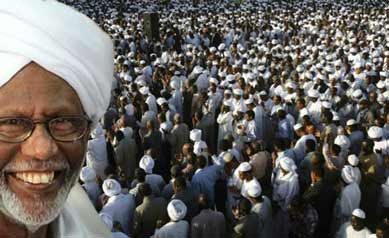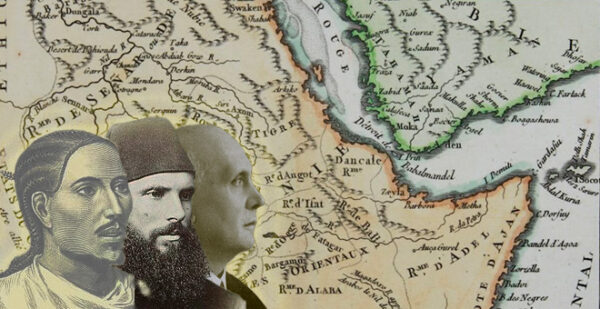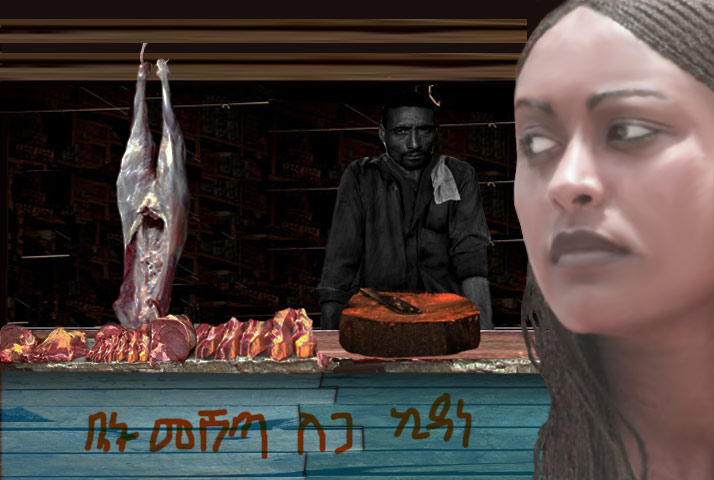In The Sprit Of Adei Semainesh (Part I)
This article is a tribute to Adei Semainesh Woldu, who also happens to be the mother of the martyr Weldedawit Temesgen, with whom my family and myself have a close relationship that stretches as far as I can remember. It is a relationship that endured the thin and the thick, the good and the difficult times. It is a tale of two families: Christian/Moslem, Tigrinya/Tigre, Barca/Seraye, kebesa/metahet, farmer/pastoralist who have survived the splits of the ELF, the formation of the PLF/EPLF/PFDJ, the coup d’etat of Rasai, the formation of the EDA and the shifting of alliances. For me, Adei Semainesh is the symbol of hope for the Eritrea of tomorrow, ‘Eretra Nai Tsbah’ that we Eritreans, despite our cultural, ethnic and religious divide, are bound to live in it together. Therefore, we need to make the best of it just as our families have done. I am sure that there are many similar positive, stimulating and inspiring stories that many of us have experienced. One such story was narrated by Habtom Yohannes not long ago.
I wanted to honour Adei Semainesh while she is still alive—what is the use if we wail, cry and write tributes to persons after they are dead, if we didn’t help them to live the rest of their lives in dignity and respect. Adei Semainesh is a symbol of hope amid the accusations and counter accusations, the defamations and the character assassinations among the ranks of the opposition as is reflected in the Eritrean cyberspace these days. As a kid, I knew her as a strong woman; she loved me like her son. She would not have enough of kissing me the Tigrinya way whenever we met and made me feel as if she was my second mother.
I remember her going weekly from Asmara to Adikhuala early in the morning to visit her eldest son Weldedawit who was imprisoned there, while she carried her younger child on her back. That time, I had no idea who that person was and why he was imprisoned.
I knew adei Semainesh engulfed in sorrow and grief when Woldedawit was assassinated in Kassala like the other military leaders of the ELF during a reign of terror that was unleashed in the early 1980s, perhaps, to make sure that the ELF would not be a military threat in the Eritrean arena any longer. During such incidents, electricity went off for a while, then gunshots were heard and later some military leader was found dead. Such was the fate of the Mahmoud Hasseb, Seid Saleh and others. Yet adei Semainesh accepted her son’s death as God’s will and bore no grudge against anyone. After independence, adei Semainesh could not rest until she took the remains of her son from Kassala to back to Eritrea, in line with the traditions of our Christian compatriots.
With the story of adei Semainesh, I also wanted to touch on the plight of the elderly in Eritrea, particularly those who have lost their loved ones in the war for the liberation of Eritrea, those who feel more lonely and who ought to live the rest of their lives in peace and dignity—life has not been generous to them.
Recently, we were at a friend’s house after he lost his mother and the discussion about highlands/lowlands, Christians/Moslems came up. Then someone said, you see, I regard the Christians/highlanders as a gift from God to us. He created us as neighbours to each other. We need to appreciate God’s gift. It was quite philosophical and touching. Since we are bound to live together, it would be better to take it as a blessing, not as a curse. For it to be a blessing, mutual understanding and respect are absolutely crucial.
I would like to touch on Ali Salem and his articles that appeared on Awate, and the accusations labelled against Awate for hosting his articles. Accusations specifically targeting Saleh Gadi: hinting at misuse of funds collected for a legal support, stating that he harbours fundamentalist views and accusing him for inciting hatred and violence. Here, there are two separate items involved: one is the content of the issues that Ali Salim raises. Are they real or fabricated? Are they insignificant or blown out of proportions? Do they represent his personal views or are they shared by many Moslems/lowlanders? I guess this is the most important matter at stake. We can also ask if the generalisations he makes regarding who is to blame for these grievances are correct or not. The other minor element is related to questions about his personality: who is Ali Salim? Is he a real, physical living person in blood and flesh with an address, a different person from those we already know or is he a known person hiding behind a false name? Unfortunately for some, it has become very important to know whether he is Saleh Gadi particular, writing with a pen name. For others, it is a foregone conclusion that does not need any proof.
In regards to the issues that he raises, I am of the opinion that his views are shared by many of his constituency though some may not share his conclusions or his approach. The social engineering that has been driven by the PFDJ for a long time in the country has reached proportions that one can no more ignore. Secondly, these issues are not new; they have been circulating in the Eritrean Arabic websites for quite some time. Putting them at Awate, in English, has brought them to a wider audience; thanks to Awate for doing so. Awate has been at the forefront at an early stage by hosting Arabic and Tigrinya articles from time to time. Many times I have come across interesting and provoking articles in either Tigrinya or Arabic and wished these were translated. Alnahda abounds with so many interesting analytical and scholarly articles in Arabic. Assena has been in the cyberspace for a short period but I appreciate that Amanuel Eyassu has started a radio broadcast in Arabic, Asmarino has been in business, on and off, for a long time. It has recently launched a section in Arabic—better late than never. Our Tigrinya intellectuals have started realising the importance of Arabic as medium of reaching a wider audience. I wish the Arabic websites launch sections in Tigrinya, too. I refer here to the independent websites, not the mouthpieces of the Government or the opposition political organisations. It is absolutely important that we communicate with each other across the linguistic, cultural and religious divide.
Ali Salim’s articles and the discussion they generated became so popular that last month the Eritrean Arabic Room at Paltalk held a cyber meeting to discuss them. Those who were shocked by his views must either be naïve, insensitive or indifferent. Perhaps, if you happen to be from a dominant group, it is not easy to feel injustice contrary to the others who are on the receiving end. In independent Eritrea, the identity of many has been doubted and they have been denied employment opportunity or their chances of getting jobs have become narrower because they do not speak Tigrinya. Today in Eritrea, people are made to feel as second class citizens. Ali Salem is a product of the erroneous policies of the PFDJ. Perhaps, he was a member of the EPLF. He is complaining against what the late Dr. Alexander Nati is quoted to have remarked, ‘The only equality that exists in Eritrea is only in dancing.’ I am of the opinion that not all the miserable conditions that lowlanders/ Moslems find or perceive themselves in today are the making of the EPLF/PFDJ. There are also some intrinsic factors that should be looked into critically.
We Need of a code of conduct
As my good old friend Berhane Woldegebriel has indicated to me once, the Internet has become like a modern car that is used by someone who does not know how to operate it and ends up crashing with it, damaging the vehicle and hurting himself and others. Ali Salem, Semere Tesfai and any one else has the right to express his/her views however bitter they can taste to others. But expressing views brings with it the responsibility of accountability for both the writer and the media (website) hosting it. Ali Salem has the right to express his views, but I strongly object to his offensive language. I object to his generalisations regarding whom he blames for the grievances. I object to his character assassination of individuals and political organisations. I think Awate or any other website should not entertain such offensive language. At the same time, I strongly object to similar trends in other websites. You can not post an article that tries to defame another person without any proof. The writer as well as the website involved is legally accountable for publishing accusations against others. Then there is an important matter that we need to attend to: who is a journalist? What are the work ethics that govern the job? Can someone, whose only articles are interviews based on e-mailed questions that lead to his own perceptions and thoughts be regarded as a journalist? Should such articles be entertained? Another aspect is, if you start attacking, labelling and defaming individuals without proof, you should be prepared to receive them too. Eritrea is a small country and people know each other very well. These accusations and counter accusations can get very ugly and personal. Unless we want to distract the opposition, playing one against the other, we should focus our energy on positive things. The internet provides us with unprecedented opportunities and we need to make the best use out of it.
Finally, let me state that it is very unfortunate that Ahmed Raji’s well researched articles about social injustice in Eritrea (first of its kind), received very little attention, while the offensive tone of Ali Salem that reflected the same basic issues has put everyone on their toes. If shocking his readers was Ali’s strategy, he has succeeded. We are in desperate need of voices of reason that can come up with a code of conduct to be agreed upon by the various Eritrean websites.
Merry Christmas and Happy New Year
In Part II will touch on whether Ali Salem could be Saleh Gadi and other relevant issues.




Awate Forum